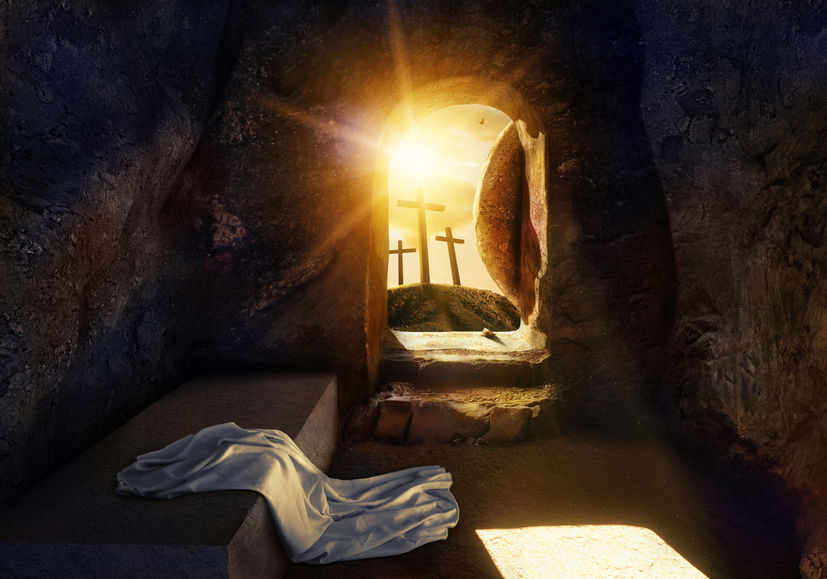
In his talk, “The Marrow of Assurance,” Sinclair Ferguson said one of the questions the church put to the men defending The Marrow of Modern Divinity was, is the assurance of salvation the essence of faith, or a byproduct of faith? “If you believe in Christ, does that mean you are certain to have full assurance of salvation?” If someone doesn’t enjoy full assurance of faith, are they still a Christian? At the very moment you come to faith In Jesus Christ, “do you have assurance?” If not, can you say you have really become a Christian?
From the days of the Marrow Controversy, and even before, this has been an issue that believers had to wrestle with and think through. “What does it mean to enjoy the full assurance of our salvation?” It can be a complex, complicated question. But the real complication is not in the gospel, but in ourselves.
For example, someone who has been abused may find it impossible to believe that somebody loves them. It would be a wonderful event for them to discover that Christ loves them. But they don’t have the mental and emotional framework to grasp how Christ could love them. “Nobody has ever really loved me. I see it tells me that in the Bible, and I trust him, but I don’t feel loved. I don’t feel the full assurance of faith.”
An all-or-nothing sense of assurance implies that if you’re not absolutely sure you’re saved, you’re not a Christian. Ferguson said, “The problem there is, that doesn’t really take account of the complex psychological makeup we have as individual Christians.” The gospel works equally in us all, but deals with different obstacles in each of us. God is both more patient and personal with us than we often are with each other.
Historically, we see in the early church an extraordinary outbreak of gospel power. Christ was raised from the dead. “What could have given the early disciples more assurance than that?” As Paul said in Romans 8:37, “We are more than conquerors through him who loves us.” They grasped that justification was by God’s free grace received by faith and enjoyed by the believer. But they also realized there were obstacles along the way.
As the centuries passed, some of the obstacles were put up by the church. By the sixth century, the church’s view was largely that while it may be possible to have assurance of salvation, that may not be such a good thing. Because people might begin to live any way they wanted. Church leaders forgot that salvation worked because God infused grace into a believer; and as we progress in life, He gives us more grace.
And as you respond to that grace faithfully, God gives you more grace. . . And as that grace continues to work in you, it changes you more and more. It’s like a medicine that has been put into you that increasingly heals you until eventually your faith is suffused with perfect love. And at that point, you become justifiable. And so God declares you justified on this basis, that He has worked in you by His grace to deliver you inwardly from sin. And so you are righteously justified because you’re righteous and therefore justifiable.
This “medicine,” the remedy for both legalism and antinomianism, is Jesus Christ. He dissolves our legalistic view of God by taking up the burden of our guilt and setting us free. He empowers us by His Spirit, which is the promise of the new covenant. And He prevents us from veering off into antinomianism because He died in order to transform us into the likeness of His own image and make us living illustrations of the commandments of God.
The problem throughout the medieval period is represented by the story of Martin Luther’s struggle in coming to faith. He fought against doubt regarding his assurance. “How could I possibly know I’ve got to that stage where my faith has been perfected in perfect love, and that I am a righteous man or a righteous woman and therefore God can righteously justify me?” In his article, “Martin Luther on Assurance,” Joel Beeke said Luther ultimately found the grace of God in Christ, through whom forgiveness of sin was complete and not dependent on human merit. He quoted Luther, who said:
We must daily more and more endeavor to destroy at the root that pernicious error that man cannot know whether or not he is in a state of grace, by which the whole world is seduced. If we doubt God’s grace and do not believe that God is well-pleased in us for Christ’s sake, then we are denying that Christ has redeemed us—indeed, we question outright all his benefits.
Medieval teachers of this view of salvation could say, “God justifies us by grace.” But they could not say, “God justifies us on the basis of the imputed righteousness of Jesus Christ.” If your justification was on the basis of a righteous that was taught to you rather than credited (imputed) to you, then only when that righteousness was perfected could you be justified. If you were asked if you knew whether or not you were going to heaven, your answer would be something like, “I hope I’ve done enough.” Within such a system of belief, it wasn’t actually possible to enjoy the assurance of salvation, unless you had lived a life that made you a candidate for sainthood, or you had a special revelation from God that you had been justified.
It was as if there was a great darkness covering the earth. There was a tiny minority who knew of their assurance of salvation. Everyday believers had no possibility of such assurance. “And then comes the Reformation.”
The story of the Reformation is that justification is given to us not on the basis of infused righteousness, but imputed righteousness. The righteousness of Jesus Christ, not something that Jesus Christ works in us, but what He had done for us. And that justification takes place at the very beginning of the Christian life. And it cannot be increased, and it cannot be destroyed. And from the very moment that we have become Christians, from that very moment we have become Christians, we are as righteous in the sight of God as Jesus Christ is.
To people brought up in the old theology, it’s a terrible thing to say you are as righteous before God as Jesus Christ. But if you don’t say that, then you don’t yet grasp what justification really is. The only righteousness with which we are righteous before God is Jesus Christ’s righteousness. We have no righteousness of our own. We are clothed in His righteousness.
This wonderful sense of assurance exists in a life that is full of difficulties. Therefore, it was often challenged. In the 16th and 17th centuries, there was a great deal of discussion of this question. When we review the history of the Christian church, there is a single point to which Reformed Christians keep coming back.
Didn’t John Calvin say that assurance was the essence of faith? This is often affirmed by quoting a statement of his in the Institutes of the Christian Religion. Calvin said: “We will possess a right definition of faith if we call it a firm and certain knowledge of God’s benevolence toward us, founded on the truth of the freely given promise in Christ revealed to our minds, sealed in our hearts through the Holy Spirit.” But Calvin wasn’t describing assurance here; he was defining faith. “That’s the definition that then has to be worked out in the laboratory of the conditions of our human experience as Christians.”
“It’s one thing for our assurance to be guaranteed in Christ, and it’s another thing for us to become conscious of that.” Assurance has something to do with us. Faith says that Christ saves, but assurance helps us realize something about ourselves. “Assurance is not only the way we think about Christ, it’s about the way we think about ourselves in relationship to Christ.” This is often challenged and questioned, especially by the devil.
When we sin, he points to the sin and says, “Can you possibly be a Christian with that kind of thing in your life?” Then the sense of assurance we have, the sense of poise that it brings, may diminish. There is a kind of assurance in faith, “but it is an assurance of Christ’s ability to save, or we wouldn’t actually be trusting Him. We trust Him because precisely He is able to save us.”
This is a reality that is progressively worked out in our lives. Some people experience the fruit of it almost immediately. Others, at times, will walk in gloom, as in Isaiah 59:9. Justice will be far from them and righteousness will not overtake them. Yet, “the people who walked in darkness have seen a great light; those who dwelt in a land of deep darkness, on them a light has shone” (Isaiah 9:2). They need to learn in the darkness to trust God.
Until the light dawns and the shadows flee away, and we are able to say, ‘I know that nothing will ever be able to separate me from the love of God in Jesus Christ our Lord’ (Romans 8:38-39).
This article has been based on “The Marrow of Assurance,” the 10th video in Sinclair Ferguson’s teaching series, The Whole Christ, from Ligonier Connect. Here is a link to Ligonier Connect. The video series is itself based upon his book of the same name. You can review summaries of the Marrow Controversy here and here. If the topic interests you, look for more of my ruminations under the link, The Whole Christ.





